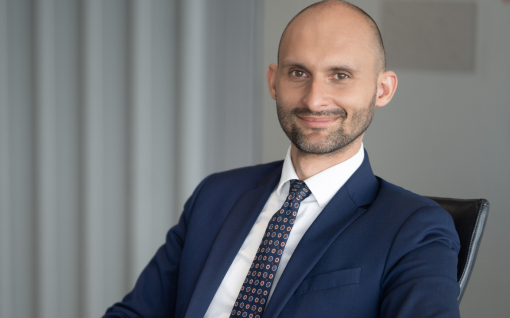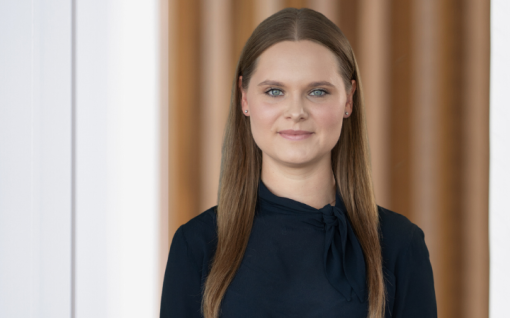‘Brute’ is not offending, though ‘a cowardly brute’ may be
There is continuing public discussion after the Supreme Court set aside the judgment of the Court of Appeal in Warsaw in the case of Rafał Ziemkiewicz. The Supreme Court ruled that calling a columnist a ‘brute’ is not unlawful in the overall context of the use of the term, yet the expression ‘a cowardly brute’ may be considered unlawful.
According to the Supreme Court, the reasons for the appealed judgment did not explain the aspect of social interest that would justify calling Mr Ziemkiewicz by the pejorative term “cowardly”.
The long road to the Supreme Court judgment
As reported by the media[1], the case concerns a press article by Cezary Michalski, published in the weekly “Newsweek Polska” in July 2017.
In light of Rafał Ziemkiewicz’s lack of involvement in political opposition activities in the 1980s, the author of the text called him a ‘cowardly brute’. In a lawsuit for infringement of personal rights, Ziemkiewicz requested that the then editor-in-chief of “Newsweek” be obliged to publish an apology.
Ziemkiewicz lost in the Regional Court in Warsaw. The court found that the press material was based on carefully selected sources of information and opinion.
In dismissing the claim, the court of first instance referred to the clear principle followed by judges in such claims. It was incumbent on the claimant to show that the defendant had damaged his reputation and honour by addressing him in an unfavourable manner. The defendant, on the other hand, had the burden of proving that the use of such expressions was not unlawful.
The Court of Appeal in Warsaw also had no doubts in respect of the case. In upholding the position of the court of first instance, it stated that although the expression ‘a cowardly brute’ could be regarded as exaggerated and even offensive, nevertheless, taking into account the limits of permitted journalistic criticism, and especially taking into account the level of current political discourse in Poland, as well as the style and language used by the claimant himself, it should be considered justified.
Commenting extensively on the legitimate social interest, the Court of Appeal in Warsaw noted that the facts and remarks in the article were consistent with reality and that the critical judgements could be justified by the social interest in drawing particular attention to the problem.
The Court of second instance also observed that the standards that apply to professionals involved in public life are different than those applicable to private matters and individuals.
Public figures, including journalists and politicians, have to be more resilient to receiving criticism and harsh statements in the social and political space. The Court clearly concluded that the claimant was a well-known journalist with right-wing sympathies, known for his sharp and irreverent statements posted both in the press and on the Internet.
In view of the above, the Court of Appeal held that the expression ‘a cowardly brute’ violated the claimant’s personal rights, but that such violation was not unlawful, as the author of the publication had acted in a socially legitimate interest and had complied with the requirements of professional diligence and reliability.
As for calling the claimant ‘cowardly’, the Court of Appeal in Warsaw stated that “it is reasonable for the author of the publication to conclude that the reluctance to become active and the avoidance of engaging in political activity, including participation in demonstrations, may have been caused by fear of the possible consequences of such a protest. Therefore, referring to such an attitude as cowardice does not, in the view of the Court of Appeal, constitute undue criticism”.
Established case-law of the Supreme Court to date
The judgment of the Supreme Court has broken away from the established case law. The jurisprudence of the Supreme Court and the European Court of Human Rights tends to go in the opposite direction. In fact, in characterising the concept of ‘socially legitimate interest’, the Supreme Court (in its resolution (7) of 18 February 2005 in Case No. III CZP 53/04) stated that this interest is primarily expressed in the realisation of the principles of transparency of public life and the public’s right to information.
Legitimate public interest concerns first and foremost the sphere of public life, where one can speak both of the existence of the need for an open public debate, which is important in a democratic society, and of the public’s right to obtain information, exercised by the mass media. At the same time, the obligation to provide a true representation of events as stipulated in Article 6(1) of the Press Law should not be equated with an absolute requirement to prove the veracity of an allegation. In other words, journalists are to be diligent and principled, however, they are not obliged to strive for so-called absolute truth in press materials.
Leaving aside the premise of legitimate public interest, in line with the case law of the European Court of Human Rights, it is important to note that blunt criticism is, as it were, a foundation of democracy.
Indeed, as noted in the above case law, freedom of expression provided for by Article 10 of the European Convention on Human Rights constitutes one of the essential foundations of a democratic society and a condition for its progress and the development of individuals. At the same time, it may not be limited to information and ideas that are favourably received or regarded as inoffensive or as a matter of indifference, but is applicable equally to those that offend, shock or disturb the State or any sector of the population. Such are the requirements of pluralism, tolerance and broadmindedness without which there is no democratic society.[2]
The potential consequences of the Supreme Court judgment
This case may be perplexing for many journalists whose work consists of covering bold political topics.
On the one hand, it is the journalists’ duty to address difficult topics and, in a way, to ‘pull out from under the carpet’ issues that are uncomfortable for those active in the public sphere. On the other hand, however, the Supreme Court’s judgment described above goes in the direction of imposing strict obligations on journalists, the fulfilment of which is problematic.
For journalists, instead of realising constitutional values such as freedom of speech, freedom of expression and the right to disseminate information, are held back by unfavourable rulings. And this, in the context of the current public discourse and the controversial message of some media, may constitute a dangerous jurisprudential precedent in the realisation of the constitutional principles of a democratic rule of law by the free media in Poland.
It is comforting to know that a single Supreme Court judgment does not actually change anything.
The case law shaped by judgments interpreting Polish law in compliance with the European Charter of Human Rights and Fundamental Freedoms continues to prevail.[3] However, ahead of the upcoming elections, this judgment sets a dangerous precedent.
Questions? Contact the authors
[1] https://www.prawo.pl/prawo/interes-spoleczny-jako-uzasadnienie-naruszenia-dobr-osobistych,522239.html
[2] This was stated for the first time in the judgment of 17 December 1976 in the case of Handyside v. the United Kingdom, 5493/72, HUDOC, and other judgments.
[3] Cf. i.a. the resolution of the Supreme Court (7) of 18 Feb.2005, III CZP 53/04, OSNC 2005, No. 7 to 8, item 114; judgment of the Supreme Court of 2 Feb. 2011, II CSK 393/10, Legalis





